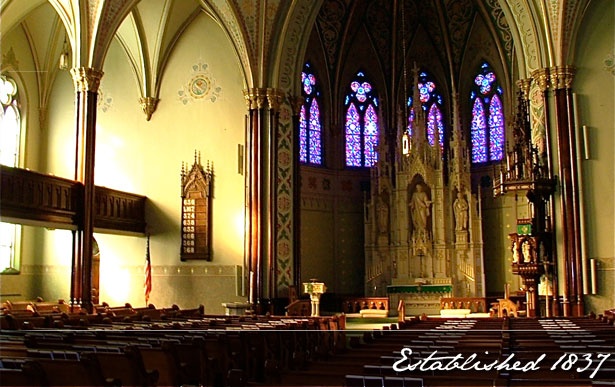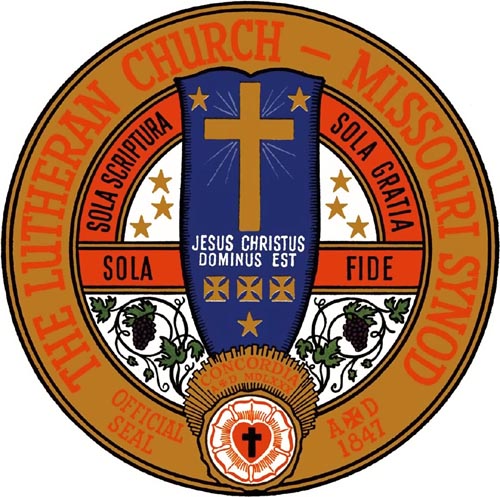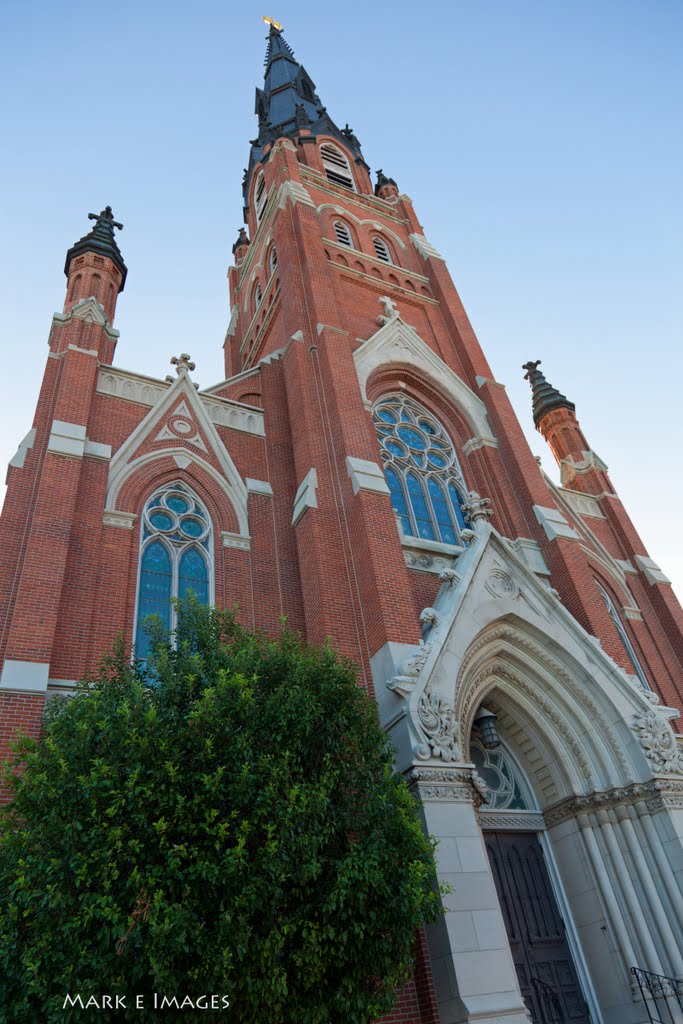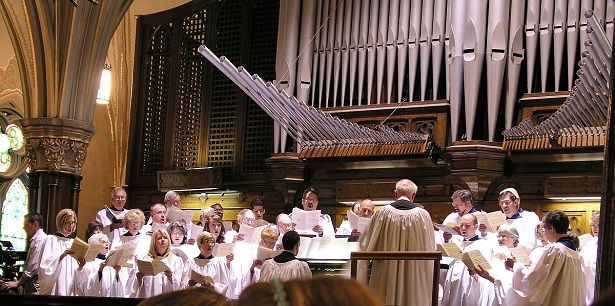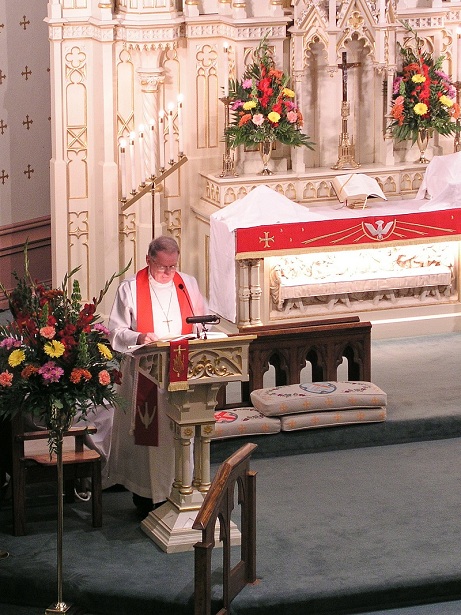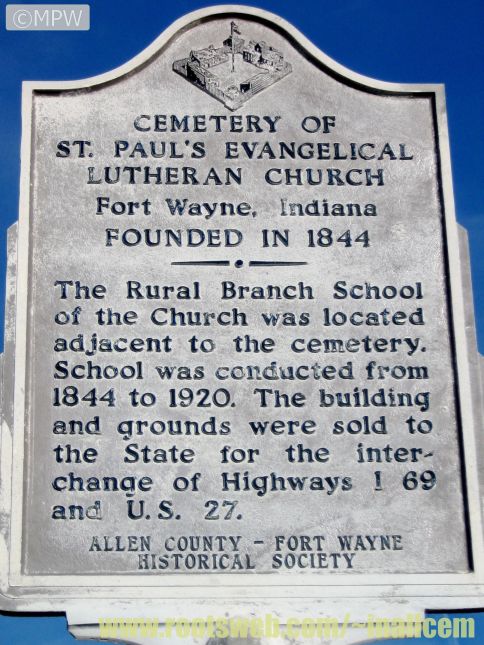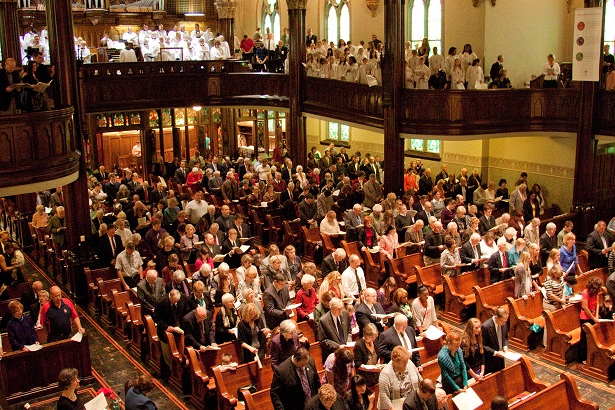
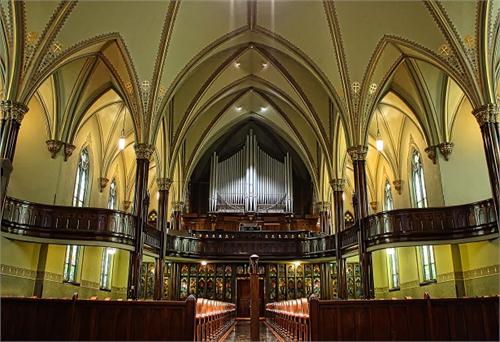
St. Paul Evangelical Lutheran Church
Fort Wayne, Indiana
The St. Paul Evangelical Lutheran Church has a long and rich history. Formally established in 1837 as the German Lutheran Church of Fort Wayne Indiana, the congregation adopted the Reverend Friedrich Wyneken, a German missionary, as their pastor. In 1846, the church adopted the name St. Paul and became one of the twelve founding churches of the Lutheran Church-Missouri Synod (LCMS), although they continued to offer services in German for nearly a century after. At that time, construction began on a larger church to replace the frame building the congregation was using. The new church was completed in 1889, only to be burned to the ground in a devastating fire fourteen years later in 1903. Unphased, the members of the congregation began to rebuild immediately, and dedicated their new building in 1905, which is the building that still stands today. The next major change the church underwent was the discontinuation of their German services in the days leading up to the second World War. After the war ended, the church began renovations, constructing their new Heritage Hall in 1952, and in 1982, the church was placed on the National Register of Historic Places. For more
Fort Wayne Indiana (part of Allen County), the town which houses the congregation, is also a very intriguing place. Originally established by French-Catholic fur traders (and operating primarily as a trading post when St. Paul’s was founded) , Fort Wayne is now commonly known as “the City of Churches”, and is home to over 400 different places of worship in the area (150 plus in the city itself) representing 40 plus different religions everywhere from Buddhism to Mormonism. This immense diversity of religion stems from the immigrants drawn into the area during the industrialization of the city in the 1850s and 60s. Among these establishments are 80 Lutheran churches, 42 of which are in the city itself, of which St. Paul’s is the first. Despite these various faiths’ presence in the city, the predominant faith is Christian. According to the 2000 census, the LCMS is the second most followed religion in Allen County, behind only Roman Catholicism. As a result the St. Paul Evangelical Lutheran Church has grown quite accustomed to working in community and cooperation with other congregations of different faiths and beliefs. For more information on Fort Wayne, Indiana, go to http://search.proquest.com/docview/197357576?accountid=351.
As part of the LCMS, the congregation believes, teaches, and confesses that the Augsburg Confession and the Book of Concord are true and faithful expositions of holy scripture, and that the Old and New Testaments are the true, inspired, and inerrant word of God. Their teachings include (but are not limited to)
- That God is a single entity embodied in three parts: The Father, The Son, and the Holy Spirit.
- That every person is born with original sin, and therefore deserves temporal death and eternal damnation.
- That a person is saved through faith, solely by God’s grace as it is provided by the Holy Spirit.
- Said faith is gained through the means of the Word and the Sacraments of Holy Baptism, Absolution, and the Lord’s Supper.
For a more comprehensive explanation of the teachings of the LCMS, visit http://www.lcms.org/page.aspx?pid=388
St. Paul’s is the oldest member of the Indiana District of the LCMS, which was founded in 1963 when the Central District split. The other half became the Ohio District. The Indiana District includes the entire state of Indiana, in addition to a large portion of Kentucky.
The St. Paul Evangelical Lutheran Church also follows in the Lutheran tradition of education and service, being the primary benefactor of St. Paul Lutheran School and providing volunteers for various relief efforts. The congregation also takes a unique stance for religious freedom in the USA. Along with a few other Lutheran congregations and in conjunction with the Catholic church, the St. Paul Evangelical Lutheran Church takes a strong stand against government mandates that require religious organizations to provide contraceptives and abortion-inducing drugs to employees. They believe that this sets a dangerous precedent for Americans’ right to freedom of religion, as it forces leaders of said organizations to compromise their faith in order to uphold government regulations.
– Cameron Jackson & Maria Paula Rodriguez
Bibliography
Kilbane, Kevin. 2012. Fort wayne lutherans plan show of support for catholics on religious freedom. McClatchy – Tribune Business News, Apr 15. http://search.proquest.com/docview/1000417581?accountid=351.
Rosa, Salter Rodriguez. 2012. Local lutherans have eyes on roots st. paul’s turns 175, hears plans for mission in germany. Journal – Gazette, Jan 19. http://search.proquest.com/docview/916801547?accountid=351.
This is fort wayne: Churches. 2007. Business People 20, no. 1, http://search.proquest.com/docview/197357576?accountid=351.
Todd, Mary. Authority vested: a story of identity and change in the Lutheran Church-Missouri Synod. Wm. B. Eerdmans Publishing, 2000.

